Pandemic Book Sales – Author Survey
No matter where you live, the Covid-19 pandemic is hitting everyone hard – with many out of work or forced to work from home. While many full-time authors were already doing that and thus may not have noticed much of a change in their working situation (other than having a potentially busier/noisier household and no Starbucks to escape to with their laptop), how have their actual book sales fared? Let’s find out by analyzing the feedback from over 90 authors!
With so many people stuck at home in forced or voluntary quarantine, logic would dictate that they have more time than ever to read. But there are also other factors at play, making the situation less straight-forward. Aside from other distractions – children (home schooling or just taking care of them), movies and television, etc, there may be less money to spend on books in general.
So does that mean people are buying more books, or less? And what should authors do about it?
As I’ve always been a firm believer that the more data you have about something, the better equipped you are to make the best decisions, I decided that the best way to answer those questions would be to put together a short survey to send out to authors and then analyze and present the community with the data.
Obviously everyone’s situation is different, but with 94 authors sending in their answers, my hope is that there is enough data across enough different genres and earning levels that you may be able to learn something that applies to your own experience. Whether it’s just to compare your own results to those of your peers, or for research to see if there are ways you can alter your own situation to try and improve, feel free to use and interpret this data in any way you think may help.
Here are the questions I asked, the reasons I asked them, and some of my own interpretations on what the results may tell us.
(Apologies in advance for the labels on a few of the charts being out of order, I wasn’t able to figure out how to re-order them with Googles charts but if I do I’ll update this blog with replacement images in the future.)
Question 1: What genre do you write in primarily
In order to properly compare yourself to your peers, you need to first identify who your peers are. The more we can narrow that group down, the more reliable the data will be for you. Not that lumping the results of all authors together is completely useless, but the more we can break down the data by factors similar to your own, the more relevant the results will be. That’s the purpose of this and the next question. Authors were asked to identify their primary genre from a list of 16 we provided. Across our sample, we had authors fall into 11 of them.
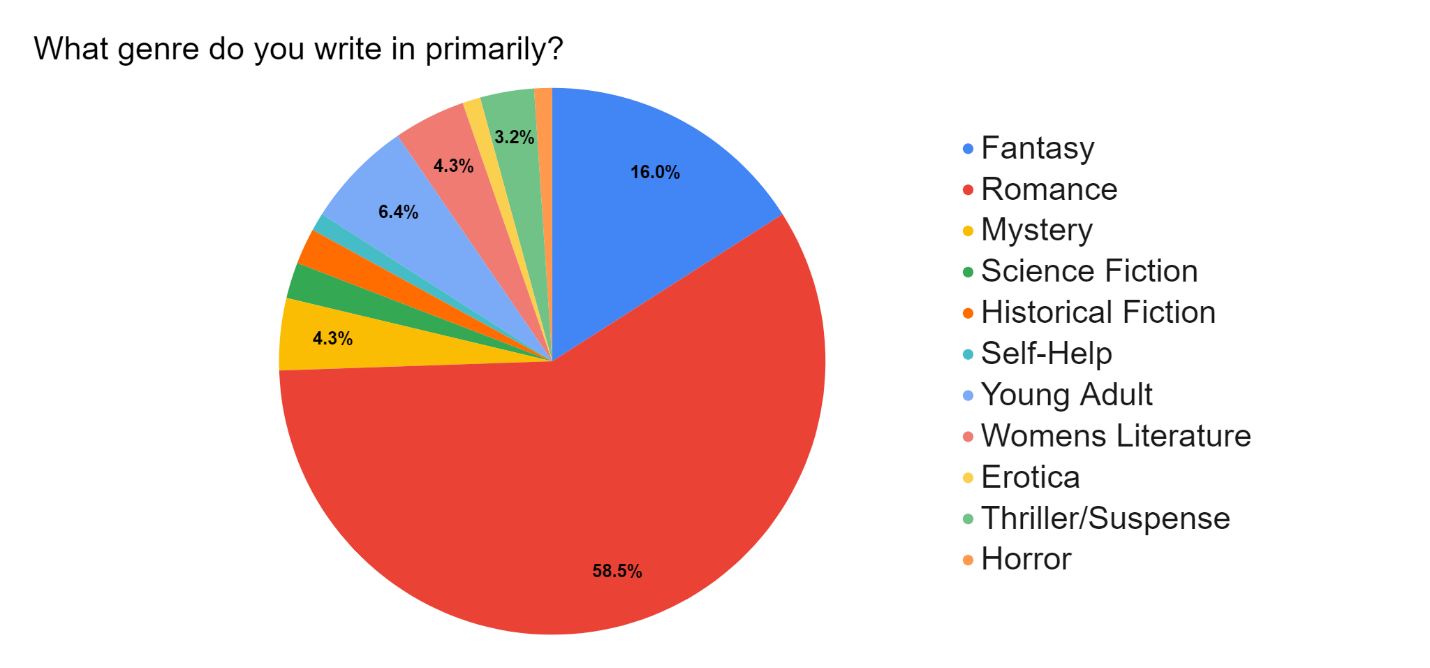
From these results we can see that close to 60% of survey responders write romance. Romance IS one of the biggest book genres, but those results likely also expose a sampling bias given that many of the authors that use our services are romance writers – however that was another reason why I wanted to ask this question. By capturing this information on each responder, we can break down our later results by genre so that the overall results aren’t skewed towards writers of one particular genre.
Question 2: Before the pandemic, how much did your books typically earn in a month?
Similar to the genre question, the idea here is adding one more factor by which you can break down the results to make them more relevant to your own case. Simply comparing an author earning $100 a month pre-pandemic against another earning $10,000 a month may provide misleading results, for a whole variety of reasons*. For example, it may be reasonable to assume that authors that were already earning a lot of money pre-pandemic had an established base of buyers and thus may be less likely to be negatively affected than an author without that base.
*Obviously there are plenty of factors at play that a survey of this size can’t account for, but something is better than nothing. I chose genre and earning level as they seemed to me to be a couple of the best factors to separate authors out by, but I know there are many others.
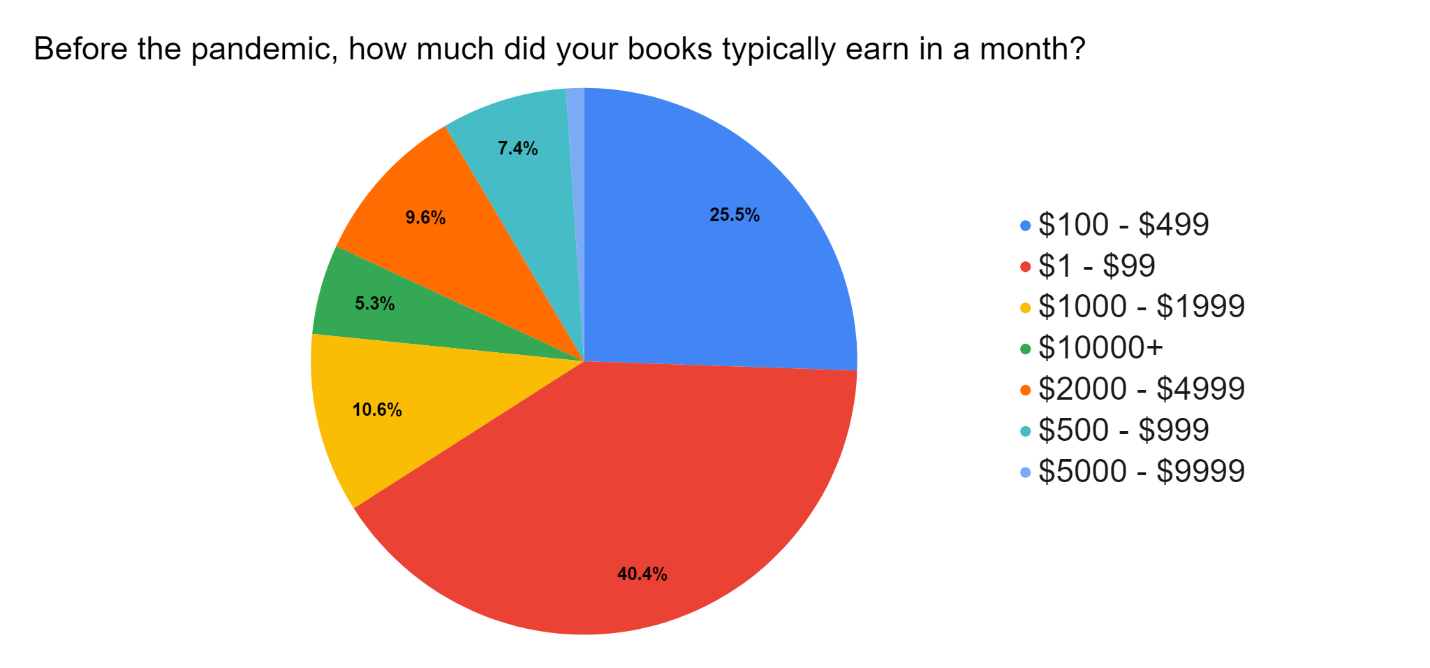
The majority of authors (about 66%) that filled out this survey were earning between $1 and $499 a month, before the pandemic. Only 16% were earning at the high end, between $2000 and $10,000+.
Pre-Pandemic Earnings by Genre
Now that we have the data from those first two questions, we can actually already begin to break things down a bit. Here are how the pre-pandemic earnings broke down across genres.
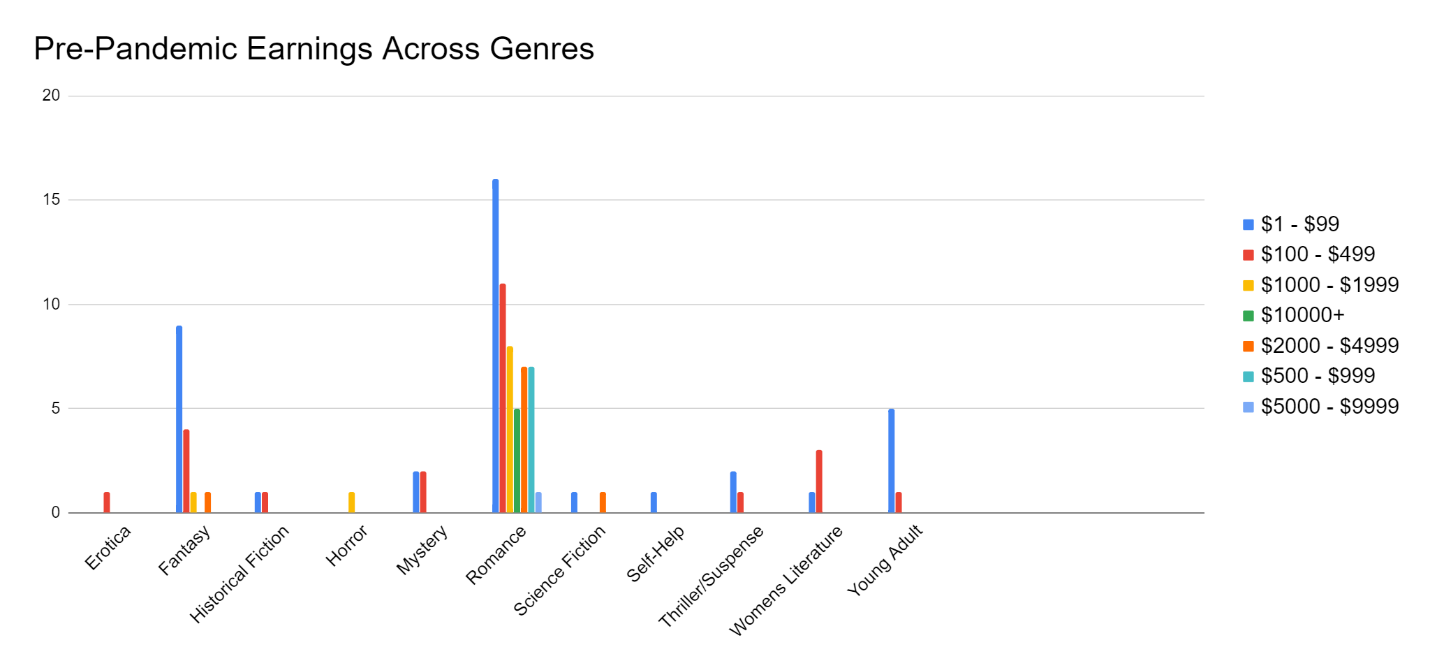
More responses across more genres would obviously be more valuable here, but hopefully many of you can find your own genre represented and have an idea of how much the authors in that genre were earning pre-pandemic. The more closely those match your own results, the more applicable the next couple of questions might be to you.
Question 3: Since the pandemic, have your book sales gotten better or worse?
Now that author context is sorted out, the questions move on to how authors have been affected by the pandemic, for better or worse. First I wanted to establish if sales had fallen or improved, and then in the next question I dive in to how much of a change there has been.
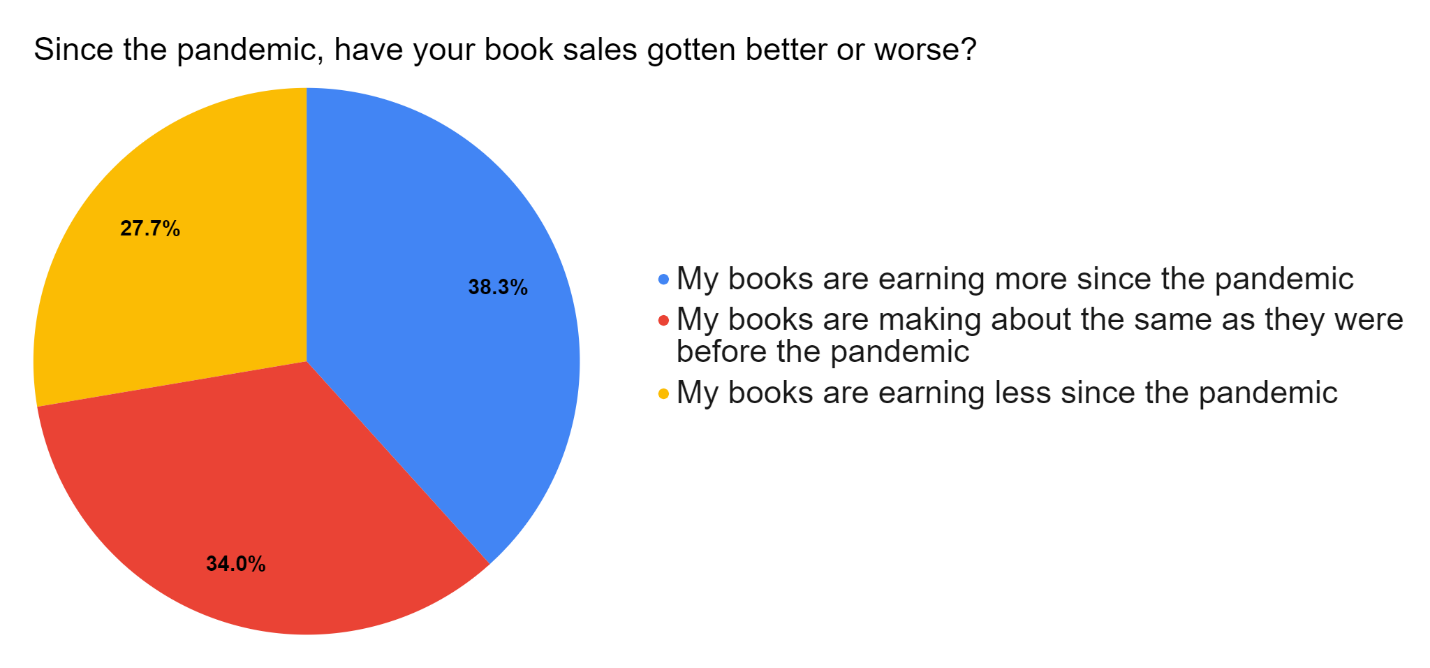
The good news is that less than 28% of authors that responded have seen their book sales fall since the pandemic started. Most are seeing either the same or an improvement in sales! But how does that break down by genre or income levels?
Change in Sales by Genre
Broken down across genre, it’s a bit easier to see which types of books are seeing increases or decreases in sales.
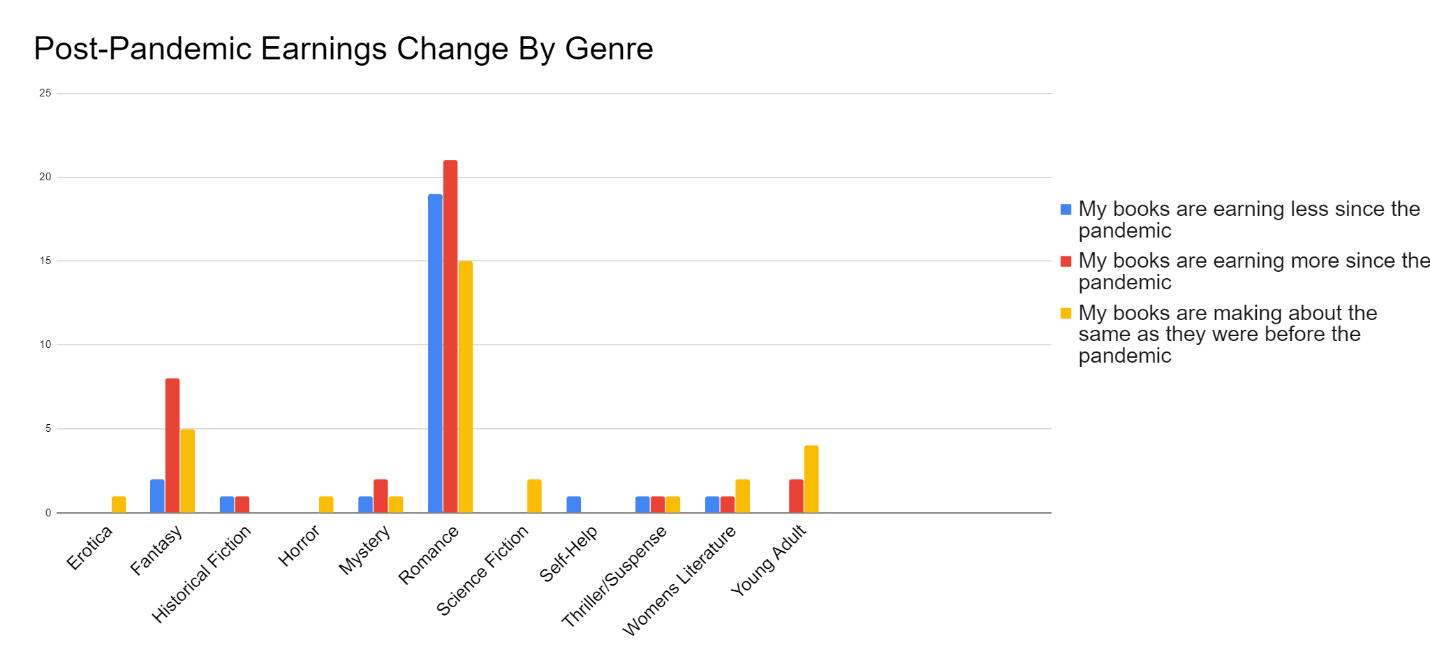
For the most part, it looks like sales are flat to up across genres. Even in romance where we have the highest reported decrease in sales, that number is still only half of the reported combined increase/no change number.
Change in Sales by Earnings
When we break the earnings change by the reports of what author’s were earning prior to the pandemic, we can get an idea of whether higher earning authors are doing better or worse than lower earning authors.
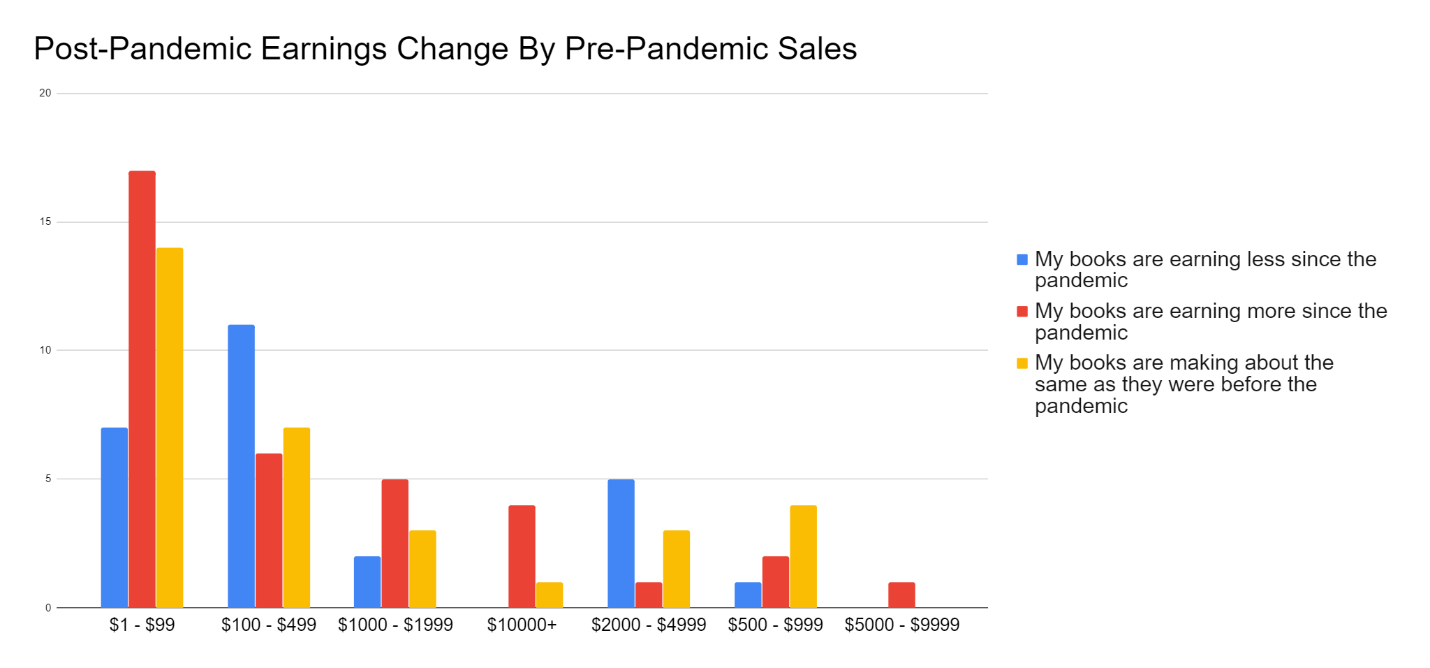
Based on those that reported, it seems like the hardest hit group (in terms of raw numbers) are the lower earning authors – those in the $1 – $499 category. In that group there are 18 authors reporting lower book income since the pandemic, yet there are still more in that group that have seen earnings rise (23) or have seen no change (21).
Viewed as a percentage, though, it’s not so bad. Only 29% of lower earning authors have seen a decrease. In fact, as a percentage, the $2000-$4999 group is worse off, with about 56% of authors seeing a decrease. But with only 9 authors reporting in that group (vs the 62 in the lower earning group), those numbers are less reliable* as a couple of anomalies could throw everything off. Just like it would be hard to make the claim that everyone earning $5000-$9999 is doing better because we’re seeing 100% of reporting authors in that situation. Given that there is only 1 author in that group, it’s fairly meaningless.
However, if we combine that with those in the $10,000+ group to make a larger group defined as higher earners, then the dataset now has a group of 6 with no authors seeing a decrease in earnings and 83% seeing an increase. Still a small set, but it may lend some credence to the theory that those that were doing well before the pandemic have a built in audience that is willing to continue buying their work, if not more of it.
*Again I want to caution that with a limited dataset like this one, especially among some of the genres that only had one or a handful of authors reporting, the results are not nearly as reliable as they would be with more authors responding and thus anyone using this data to make interpretations or decisions should keep that in mind – and this includes listening to my own interpretations, which are also based on this same small dataset.
Question 4: If your sales are up or down, what is the percentage that they’ve changed since the pandemic?
Whether they’re seeing more or less sales, how big of a change are they seeing? After all, if we’re just talking about a few percentage points difference, it’s less of a big deal than if we’re seeing differences in the mid to high double digits.
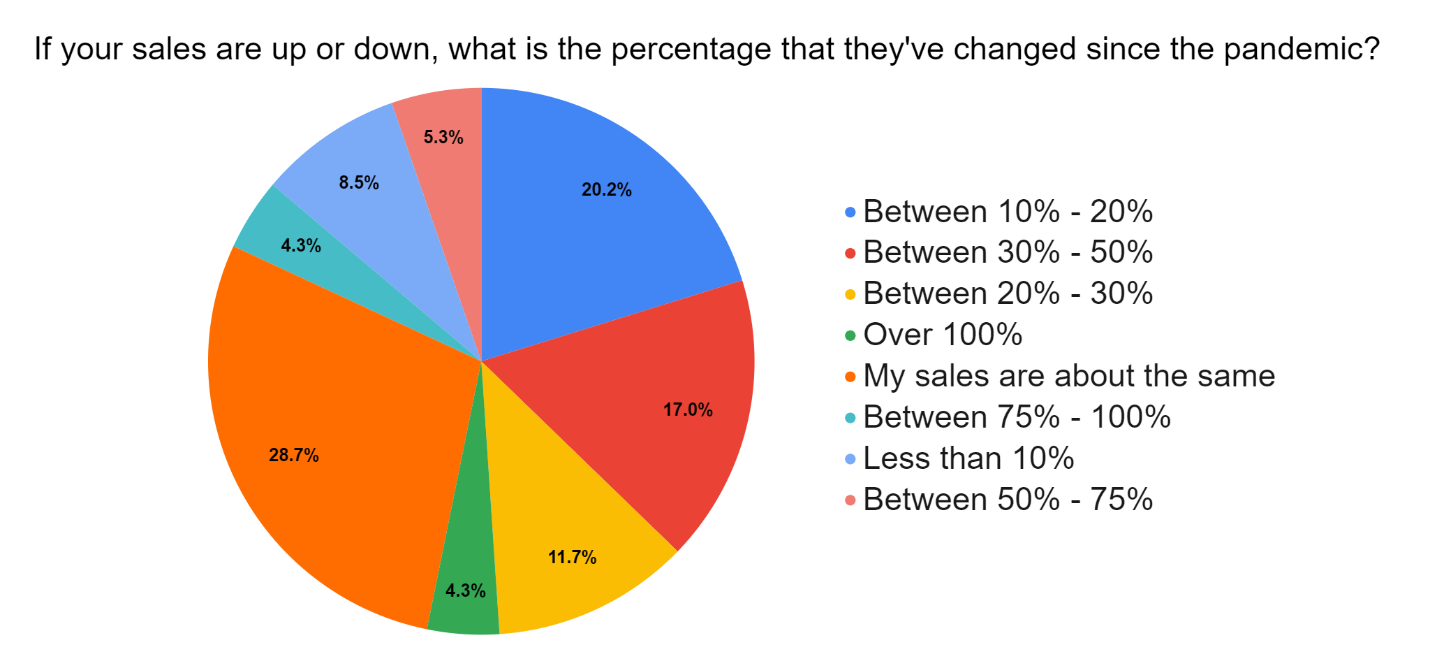
If you’re paying attention, you may notice a slight discrepancy here.
I would have expected that the number of people that answered “My sales are about the same” here (27) would equal the number of people that answered “My books are making about the same as they were before the pandemic” (32) in the previous question, but it seems like 5 authors that said they hadn’t changed in Question 3 decided to report a percentage change here. All 5 were between 0-20% so it could just be that in the previous question they were considering that small change to be equivalent to “about the same”. In hindsight, I should have only enabled this question for people that indicated seeing a change in the previous question.
Aside from that, from those that are seeing a change, most of them are seeing between 10% – 50%. In fact, if we remove the 27 that haven’t seen a change from the equation, the 10% – 50% group makes up 69% of those that are left. So the changes in sales, when seen, are not insignificant.
The more interesting question now is whether those percentages translated into increases or decreases in sales, and how that broke down by genre.
Better or Worse by Percentage
Overall, how do these percentages break down in terms of gains or losses in book sales?
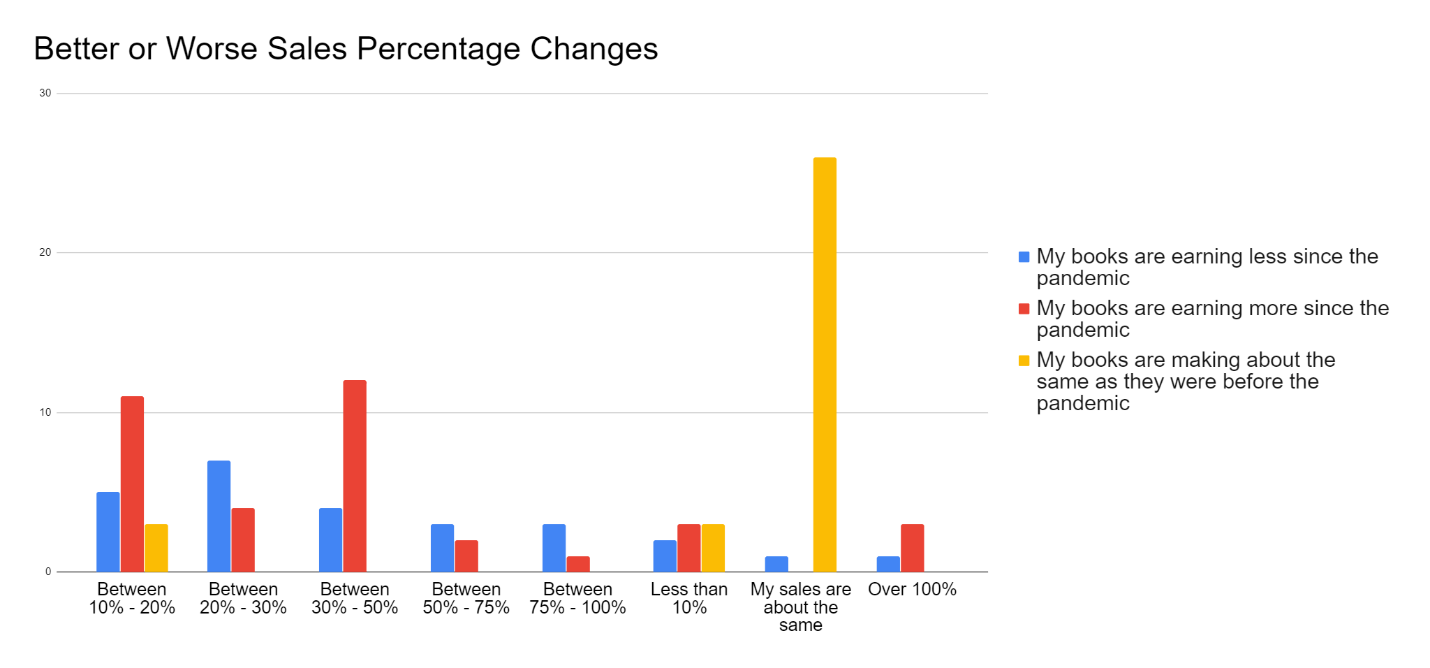
For the most part, those 10% – 50% changes in book sales that authors are reporting are increases in sales rather than decreases. 27 increases in that range vs 16 decreases (and 3 in that range that we have to ignore because they were marked as no change, so we don’t know if they were increases or decreases in sales). Across the rest of the range, the gains and losses are fairly flat and evenly distributed.
But how about if we add in genre to further break things down?
Sales Improvements Across Genres
To simplify, here we are only looking at the percentages that were reported as increases in sales, and in the next chart we’ll look at the decreases in sales.
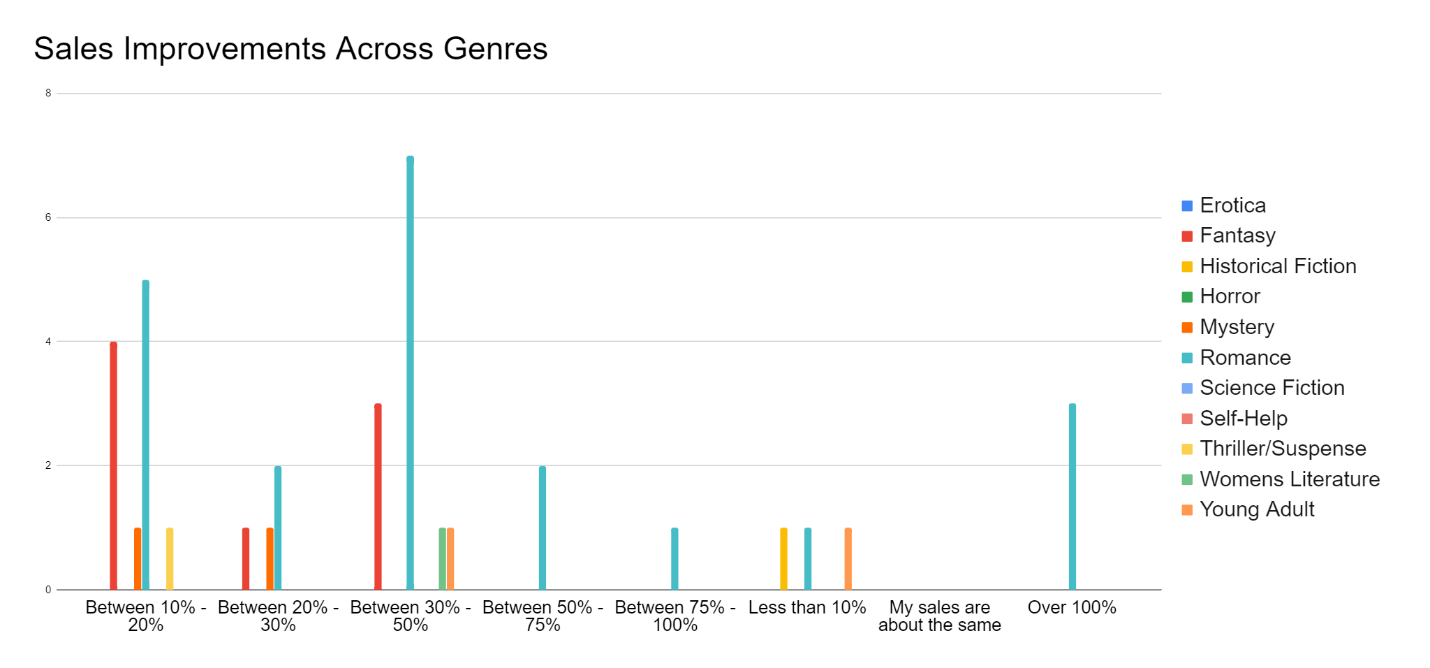
It looks like the biggest winners in terms of sales increases overall are in the romance and fantasy genres, both in terms of raw numbers and in terms of the biggest percentage book sale gains.
Perhaps that means that when in quarantine, people are fantasizing more – about both love and escaping their boring lives for a more fantastical one?
Sales Decreases Across Genres
Here are the percentages reported as decreases in sales across all reported genres.
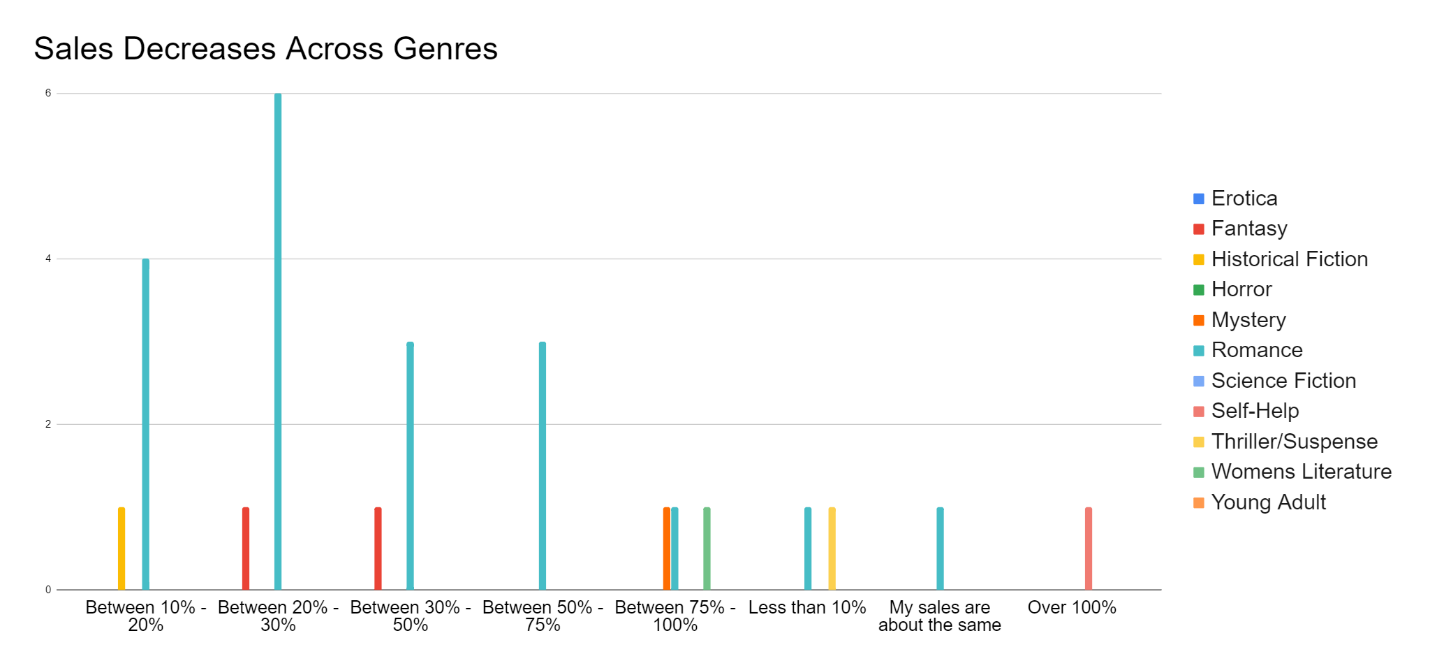
Similar to the increases, romance has the most action but in this case it makes it the biggest losing category. In fact, in that 10% – 50% group, romance almost has the same number of losers (13) as gainers (14). Fantasy isn’t nearly as represented here, with just 2 authors reporting decreasing sales, so it seems like the biggest overall winner in all this are Fantasy writers.
Question 5: If you give away free books, have you noticed an increase or decrease in the number of freebies you’re giving away?
Given the idea that people may have less money to spend on things like books but still have extra time to read, I thought it would also be interesting to ask whether authors are giving away more free books during this time.
One caveat with this question, though. My intention was to gauge whether, in the case where the author hasn’t changed anything else, are more people requesting/downloading free copies than pre-pandemic levels. But I realized after publishing the survey that this question doesn’t necessarily make that clear, and thus it’s possible that some authors that answered have stepped up (or down) their free book giveaways during the pandemic, which may also affect results. So keep that in mind when interpreting the results.
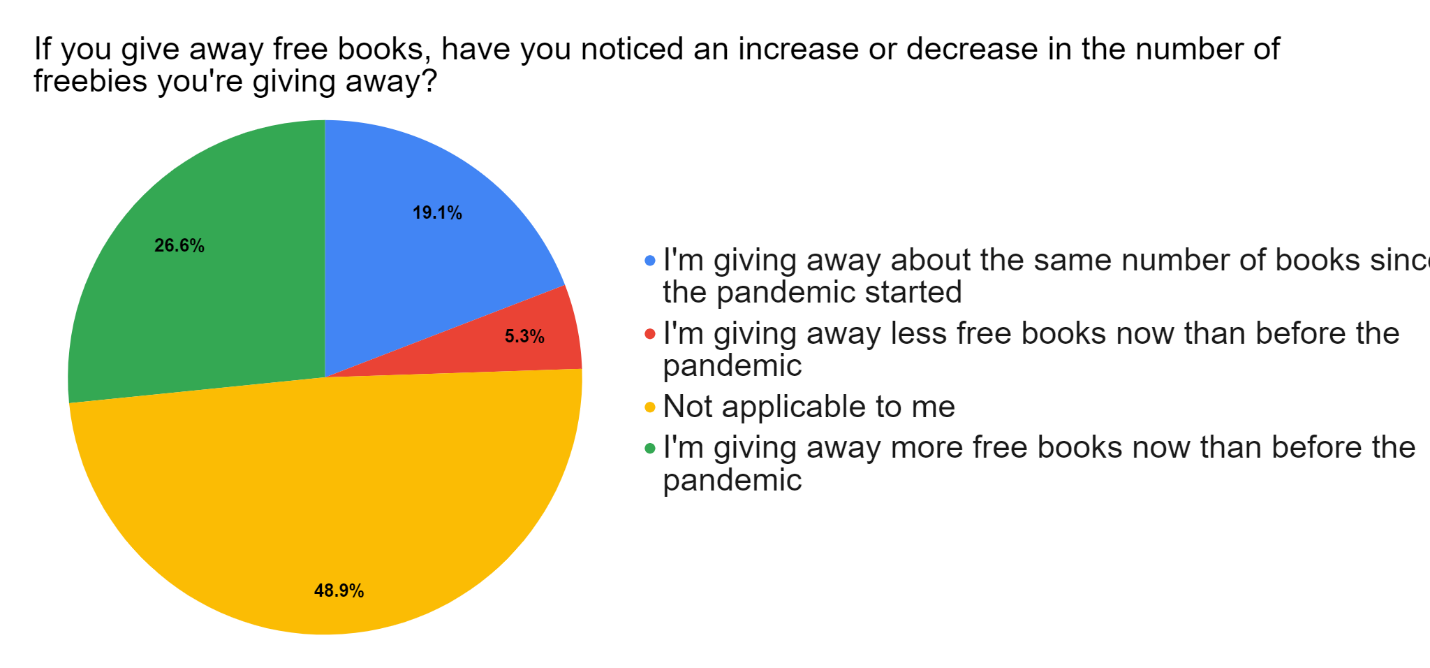
According to these results, almost half of authors aren’t giving any free books away at all, so I think it would be more meaningful to strip those results out completely and then look at the percentages just from those that give away books in the first place.
If we do that, then we see that over half – 52% – are giving away more free copies than before the pandemic, 38% are giving away the same amount, and only 10% of authors are giving away fewer books.
So while I do still urge you to keep in mind the caveat I mentioned above, those numbers do seem to align with what we’re seeing with our Hidden Gems ARC readers. Number of subscribers (reviewers) are up, as are the average number of sign ups per ARCs that we’ve been sending during the pandemic.
It does seem like people are hungry for free content.
Question 6: If you have a mailing list, have you seen any change in the number of sign ups since the pandemic?
The idea here was to gauge whether authors were seeing more people signing up to their mailing lists, perhaps as a way to get more free books or because they’re reading more. But like I did with the last question – worse, in fact – was make this question too vague for the responses to provide much meaning. Authors vary greatly in how they attract sign ups, where they advertise it, what (if anything) they give away, etc. Without any of that context, it’s very hard to interpret much from the results.
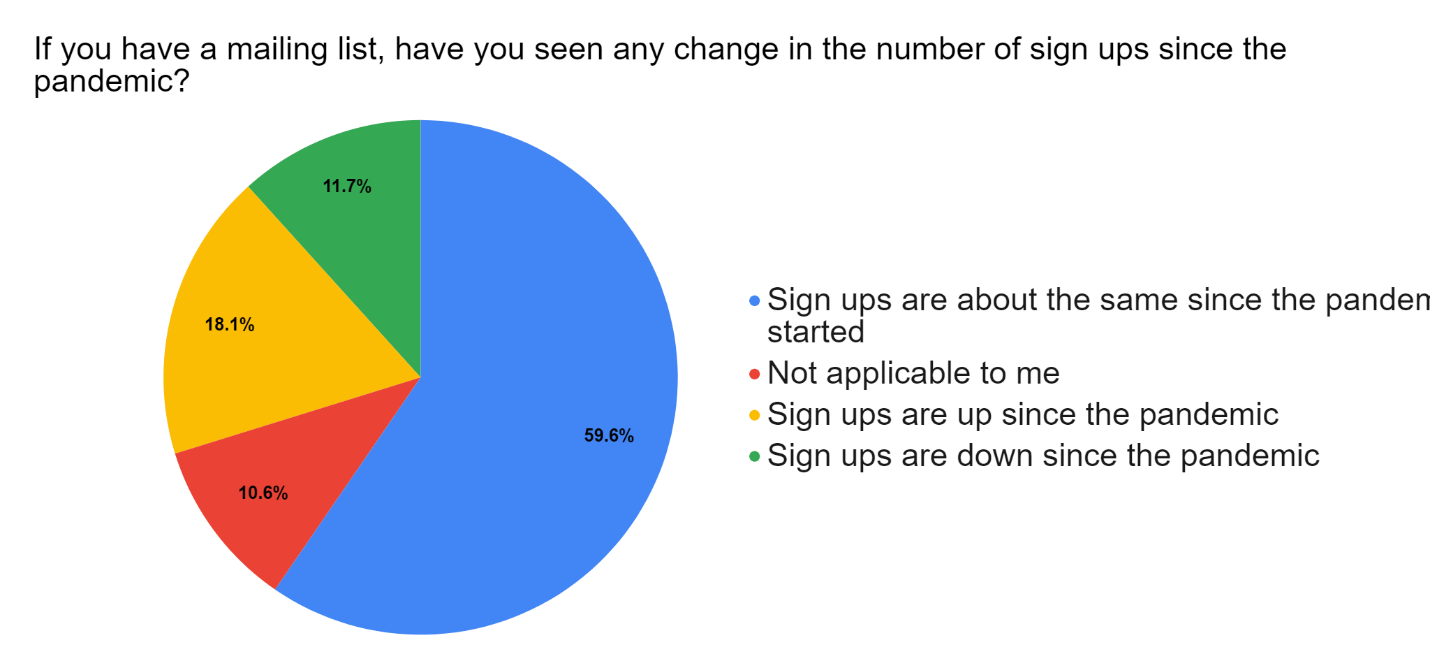
Still, for what it’s worth, it looks like most authors aren’t seeing much change in their mailing list sign ups, and the number that are seeing an increase are not much higher than those seeing a decrease. So I really don’t think there is a lot we can learn from this, unfortunately.
What to do with these results?
Overall, a sample size of 94 authors isn’t bad but when you want to break things down across genre, a larger number would have been preferable. If you’re a writer of romance there may be enough of a sample size here to draw some good data, and certainly some things can be applied to writers as a whole, but if you write in a less represented genre you definitely want to be even more careful in how you interpret these results.
And I also realize that only six questions isn’t very in-depth, but there’s a fine line between keeping the number of questions to a minimum so that people are more likely to respond, and getting all the data you want – especially when I was looking for a quick turn-around. I’d say that if this whole pandemic continues to drag on we can try again – by trying to get even more responses and/or adding even more questions, but obviously I’m hoping we won’t be facing this situation for too much longer.
So how or if you choose to do anything with these results are up to you, but my hope is that they help – even just a little. If nothing else, maybe you can take some comfort in the fact that other, similar authors, are in the same boat as you. Or if they aren’t, maybe that’ll give you a bit of motivation to dig into why.
Of course, if you’re doing BETTER than your peers, then the why may not seem AS important but I would argue that it shouldn’t be ignored. Learning from what you’re doing RIGHT is often just as important as learning from what you did WRONG. After all, you want to replicate and maintain that success, right? If you know what it is you’re doing right, then that’s far easier to do, going forward. Plus, if you figure out what you’re doing right, maybe you can double down and do even better?
But for those that are doing worse than your peers, or even if you’re doing the same or better but still seeing lagging sales during this time, what should YOU do?
Here are a few things to consider.
1. Scale back or stop your ad spend
If you’re not seeing the results you’re used to seeing in terms of your ads or other promotions, you may want to stop running them (or at least scale them back) to stop the bleeding. Save the ad spend for when buying returns to normal and look at being productive in other ways (see the next points).
2. Grow your list with giveaways
With people looking for more free stuff now, it may be a great time to run some giveaways, perhaps sending out free copies for those that sign up to your list. If you have a series, I usually recommend sticking with book 1 as the freebie which hopefully hooks readers into wanting to buy the later books – even if they have to wait a little while to do so! Remember, even though Amazon doesn’t explicitly allow you to set the price of your (non KU) book to free, you can still get it done via price matching by setting the price to zero on other stores and then alerting Amazon.
3. Write more but hold off on publishing
Spend your time writing the next book instead of worrying about trying to squeeze blood from a stone right now. It doesn’t mean the book you JUST released is a total write off – there are things you can do later to try and revive it (such as just republishing it), but if sales have fallen off a cliff (when prior to the pandemic they were good) then it might be a good idea to just spend your time writing the next book and waiting until after all this has passes to publish it.
4. Prepare for the eventual return to normality
It may seem like things will NEVER return to normal, but they will. It may be in weeks, or months, or longer, but eventually a vaccine will be found and things will slowly get better. So be prepared to hit the ground running when it does! Doing the things above (writing your next book, building your list, etc) are a great start, but make sure everything else is as ready as it can be so that you’re ready to go as quickly as possible. For new books, why not get your covers designed, beta reader feedback in, editing done, etc. If your book is already out, make sure you have enough reviews, research the best places to market or advertise for your genre, build your list of advertising keywords or advertising imagery… whatever you need to do to make sure your book has the best chance of success once the world begins to turn again.
Thanks for reading, and a special thanks to all the authors that took the time to fill out the survey. If you have any comments about the results or suggestions about other areas you’d like to see explored, feel free to leave a comment below!




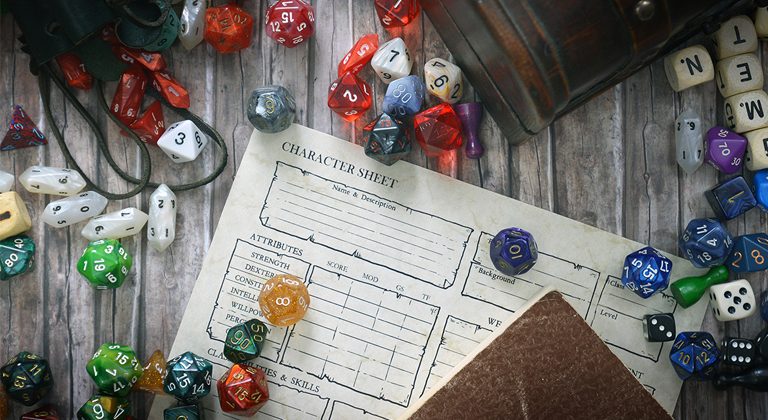
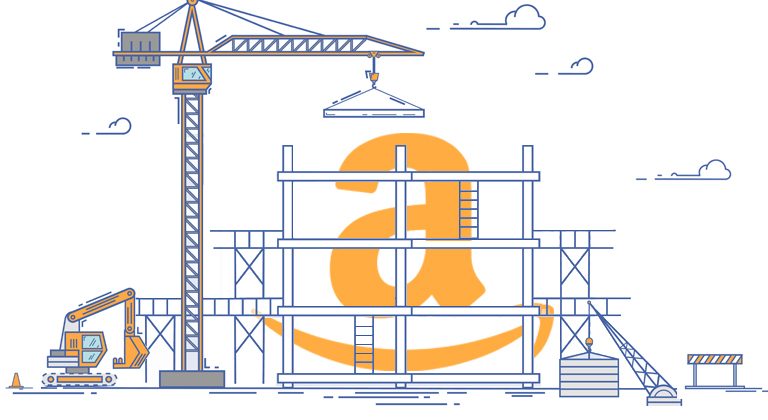

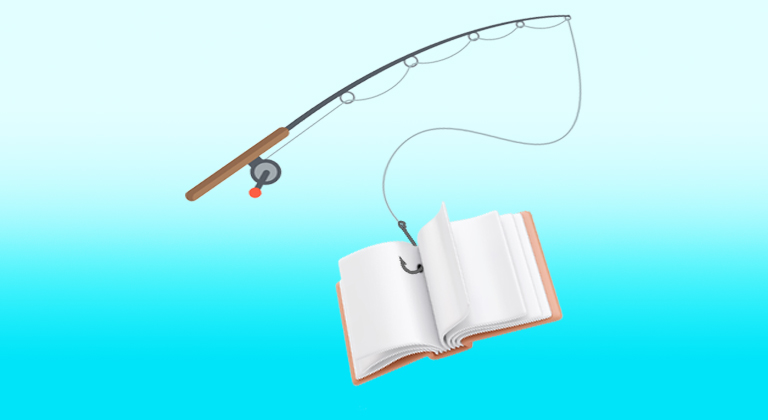

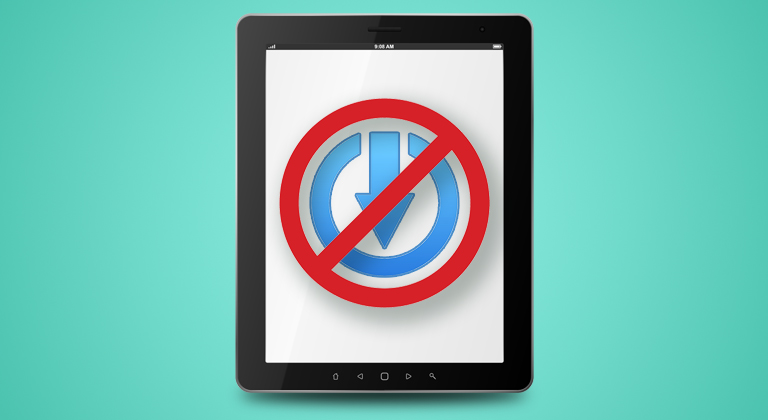
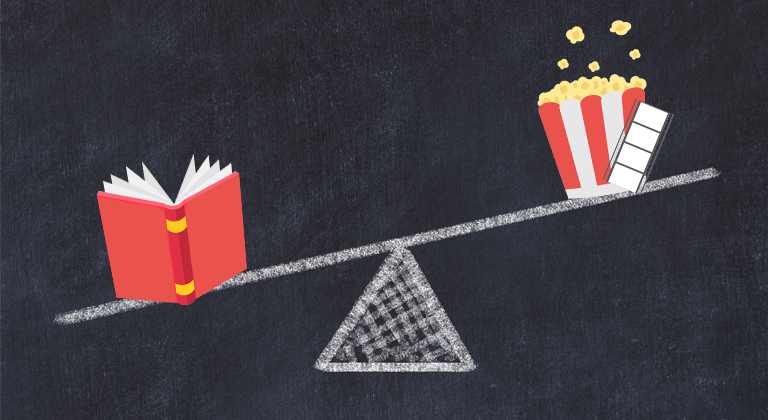

Re my reply above, I forgot to mention I write fantasy. Also I’m happy to do another survey in a month or so with rejigged questions. Interesting times for authors.
Thanks for the very thorough analysis. Good job! Re the free books question, I am definitely seeing more interest in free books, both for reading and reviewing purposes. I’m also noticing readers are enjoying series (mine, anyway) at the moment, as they have the time to go straight on from book 1 to book 2.
Thank you for all the hard work and reality check. I would like to say that in my own case I feel my sales are down in part because I did stop paid ads when I saw my ROI tank. Rather than keep beating a dead horse, I stopped running them. I’d already started doing many of the things you suggested before I saw this post this morning– list building, some freebees to keep up engagement and focusing on writing as much as I could. Your article helps me feel better about my choices right now. Cheers,